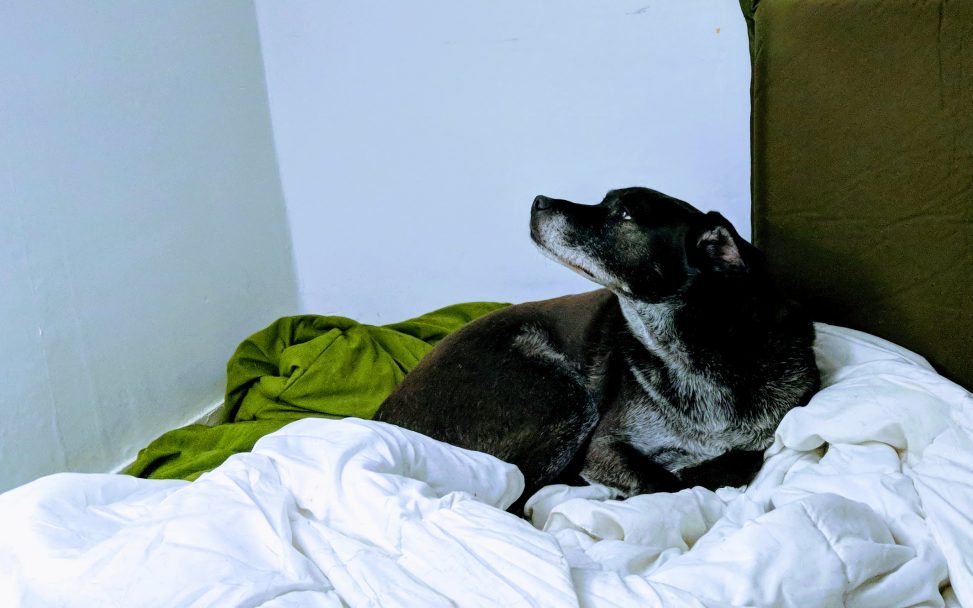I was able to interview Professor Lone Fight this past week and he told me all about his dog, Cooper. Cooper is a rescue dog and they think he’s some sort of a lab mix. He’s about eight or nine years old but he still loves going on walks. Cooper also plays, he’ll play fetch but not drop it when he brings it back so it’s some tug of war, he also likes to just run around and get chased.
We all love playing with our dogs, their energy and fun-loving behavior is contagious. Whether it’s tug of war, catch, or just running around dogs can find a way to enjoy any circumstance.  Play is associated with just having fun and letting energy out which is often true, however, play also serves many other purposes and is extremely beneficial for dogs. Similar to dogs, wolves also enjoy playing in their packs showing the universal nature of this activity.
Play is associated with just having fun and letting energy out which is often true, however, play also serves many other purposes and is extremely beneficial for dogs. Similar to dogs, wolves also enjoy playing in their packs showing the universal nature of this activity.
When a dog plays, especially when they are younger it is not only a way to have a good time, but it also benefits motor, spatial, cognitive, and social skills (Zazie, 2020). When a dog is running around and playing as a puppy, they are exploring their surroundings and their own bodies. This is a safe way for them to understand their limits and what they can do. Playing with other puppies also builds social skills as they learn how to get along with other dogs. It has also been shown that dogs would prefer to play with a human than by themselves when there’s a toy around (zazie,2020). For example, when Cooper is running around and chasing after toys, he’s getting all the benefits of exercise while also forming bonds with his owners. This means that dogs are including the human as if they were a dog in the play and can help build the social linkage with people.
Wolves are different from dogs when they play. Wolves play from a very young age in packs and they use a 50/50 level playing field. This means that when one wolf has an advantage such as age, size, or strength they will self-handicap. It has even been observed where an alpha male played with a pup that had been left out, demonstrating the importance of pack social structure (Cordoni & Palagi,2019). This dynamic is different from dogs, where play is often more offensive and becomes asymmetric. This is a way in which they can determine which dog is stronger and more dominant. Cooper tends to only show this behavior when on leash when he is no longer in control and will sometimes try and gain dominance. Interestingly, Cooper will self-handicap around Professor Lone Fight’s daughter who is a toddler. This behavior indicates that offensive asymmetric play tends to stay between dogs.
While dogs and wolves play differently, they both benefit from the behavior. It’s important to play with your dog as it will strengthen the human-dog connection and engage your pet. Dogs usually prefer playing with a partner and playing alone can lead to more stress. Sometimes dogs will play to avoid uncomfortable situations so it’s important to read what how your dog is feeling.
Works Cited
Cordoni, G., & Palagi, E. (2019, November 18). Back to the Future: A lance Over Wolf Social Behavior to Understand Dog–Human Relationship. MDPI.
Zazie Todd, P. (2020, July 25). Why Do Dogs Play? Retrieved October 02, 2020, from https://www.companionanimalpsychology.com/2017/11/why-do-dogs-play.html

Leave a Reply